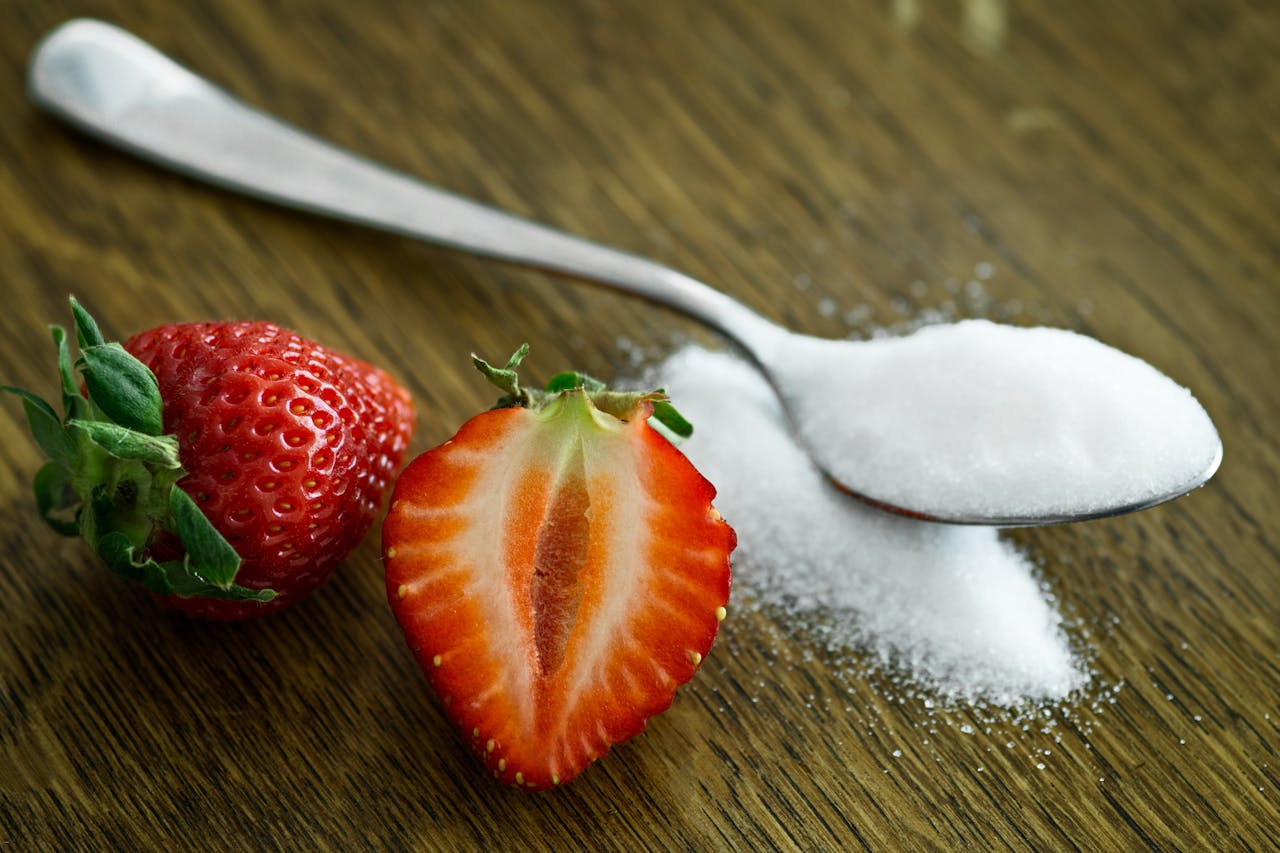In today’s health-conscious world, sugar has become a major topic of discussion; its impact on metabolism, weight gain, and overall health is widely debated. While many people associate sugar with indulgence, few realize just how ubiquitous it is in the modern diet. From processed foods and beverages to so-called “healthy” options like flavored yogurts and granola bars, added sugar is everywhere. Understanding its effects and finding healthier alternatives is key to maintaining better health and avoiding the long-term consequences of excessive sugar consumption.
The Hidden Costs of Refined Sugar
Refined sugar undergoes a processing method that strips away essential nutrients such as vitamins and minerals, leaving behind an empty-calorie substance that contributes to metabolic issues and insulin resistance. This highly processed form of sugar not only provides no nutritional value but also depletes the body’s mineral reserves, particularly potassium and magnesium, which are crucial for fluid balance, muscle function, and overall well-being.
Excessive sugar intake has been linked to:
✔️ Increased fat storage and difficulty losing weight
✔️ Blood sugar spikes and crashes, leading to energy fluctuations and cravings
✔️ Higher insulin levels, which contribute to inflammation and metabolic disorders
✔️ Fluid retention and bloating, often mistaken for weight gain
The key takeaway? Refined sugar is not just about weight gain; it disrupts the body’s entire metabolic system.

Natural vs. Refined Sugar: A Healthier Spectrum
Not all sugars are created equal. Some less refined sugars, such as turbinado sugar and molasses, retain trace minerals and nutrients. While they may be marginally better than white sugar, they still impact blood glucose levels and should be consumed in moderation.
A better alternative is raw honey, particularly varieties like Tupelo honey, which have a lower glycemic impact due to their unique composition. However, even honey should be used sparingly, especially for individuals managing diabetes or insulin resistance.
The Rise of Natural Sweeteners
For those looking to satisfy a sweet tooth without the metabolic consequences, natural sugar substitutes offer a viable solution. Among the best options:
✔️ Stevia – A plant-based sweetener with zero calories and no impact on blood sugar levels
✔️ Monk Fruit – A natural sweetener derived from a fruit, providing a sweet taste without insulin spikes
✔️ Erythritol – A sugar alcohol with a minimal effect on blood sugar and fewer digestive side effects than other sugar alcohols
These alternatives can be used in baking, beverages, and everyday meals without causing blood sugar imbalances.
Navigating Hidden Sugars in Processed Foods
One of the biggest challenges in reducing sugar intake is hidden sugars in packaged foods. Many products labeled as “healthy” or “natural” contain large amounts of added sugar, often disguised under different names such as:
❌ High-fructose corn syrup
❌ Cane juice
❌ Maltose
❌ Dextrose
❌ Agave nectar
Flavored yogurts, fruit juices, granola bars, and even some low-fat products are loaded with sugar. The best way to avoid hidden sugars is to prioritize whole foods, prepare homemade meals, and read ingredient labels carefully.
Reducing Insulin and Supporting Metabolism
Excess sugar elevates insulin levels, which prevents fat-burning and contributes to chronic inflammation. The goal of cutting back on sugar is to stabilize blood sugar, allowing the body to efficiently burn fat and maintain consistent energy levels.
✔️ Increase fiber intake – Whole vegetables, nuts, and seeds slow sugar absorption
✔️ Prioritize protein and healthy fats – These macronutrients promote satiety and prevent cravings
✔️ Stay hydrated – Water helps regulate metabolism and reduces sugar cravings
By making small, intentional changes, individuals can lower their sugar intake while still enjoying naturally sweet foods in a balanced way.
A Call to Action: Choosing a Healthier Path
Sugar is not inherently bad, but its excessive consumption in modern diets has led to serious health consequences. By making conscious choices to limit refined sugar, avoid hidden sugars, and embrace natural alternatives, we can take control of our health and support long-term well-being.
The path to a healthier life does not require deprivation—it simply demands awareness and smarter choices. Small adjustments can lead to big changes, helping individuals reduce cravings, stabilize energy, and protect metabolic health for years to come. of excessive sugar intake.




